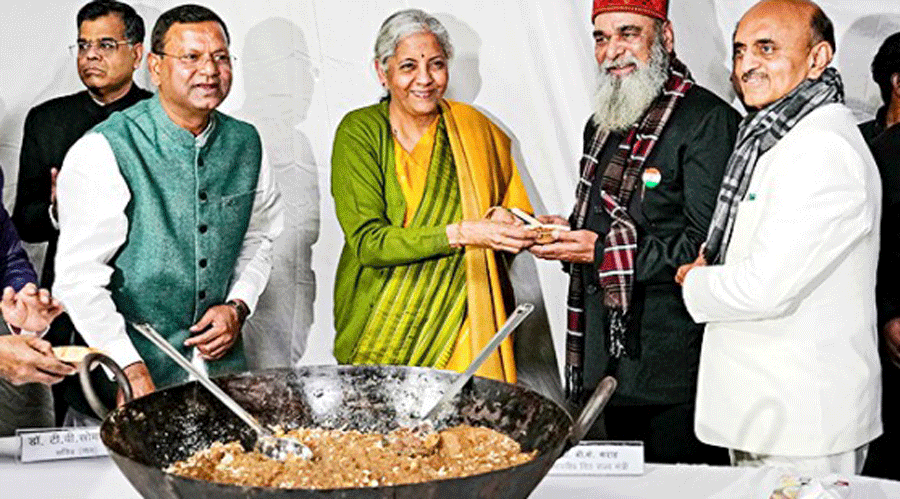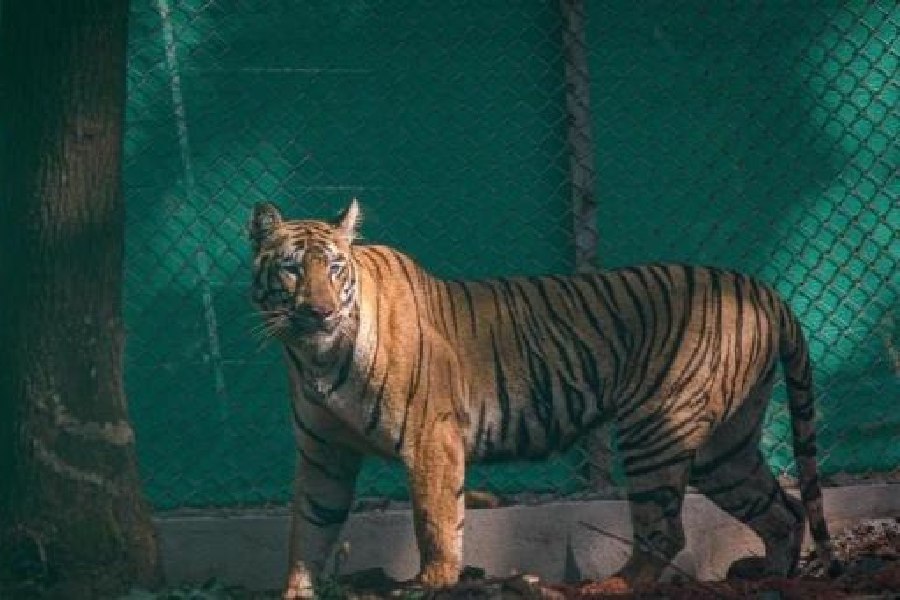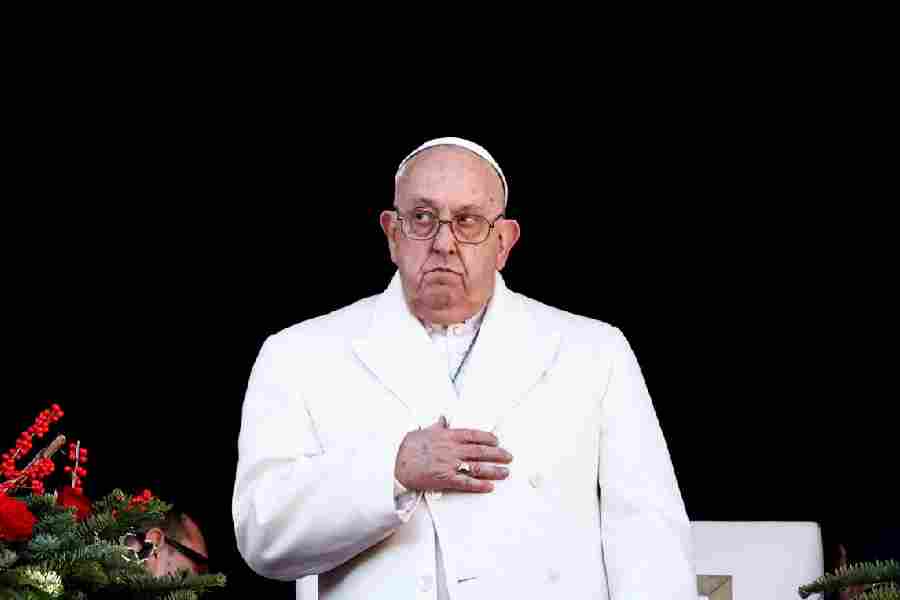The countdown for the last full budget before the 2024 elections was kicked off on Thursday by finance minister Nirmala Sitharaman who led the traditional ‘‘Halwa ceremony’’ in the North Block with the ministry officials.
The ceremony is performed every year before the “lock-in” process of Budget preparation begins.
Like the previous two budgets, Union Budget 2023-24 will also be delivered in paperless form. It will be presented on February 1.
To feed the documents digitally, 30 to 40 finance ministry officials would be quarantined compared with over 100 personnel in the past at the basement of the North Block where the press is located. They would not be allowed to contact their families through phone or any other form of communication, such as e-mail, texts.
Only very senior officials in the finance ministry are permitted to go home. Mobile phone jammers are installed to block phone calls. Internet connections of staff and senior officials are cut. Phone calls made through landlines installed are closely monitored. They will only emerge once the finance minister presents the budget in Parliament.
During the “lock in” period, visitors are normally not allowed in the North Block, and if permitted, they are escorted by security personnel to the officer they wish to visit.
Departments, which deal with taxation policies and which form the heart of the budget-making exercise, are kept under strict armed guard.
A team of senior intelligence bureau officials keep watch on the denizens of the North Block and their visitors as well as on the regular security personnel.
Export reliefs
The budget could provide for a higher outlay for the exporters’ flagship tax remission scheme and increase the interest subsidy from up to 3per cent to 5 per cent for pre and-post shipment credit for MSME exporters manufacturing stipulated products.
It could also provide import duty exemption on more input items mainly used by apparel and textiles, handicraft and leather industries for exports.
Sources have indicated that the government has acknowledged “anomalies” in the case of 432 products under the Remission of Duties and Taxes on Exported Products (RoDTEP) scheme.
Due to this, they added that the effective refunds will rise for most of these exported products under RoDTEP.











